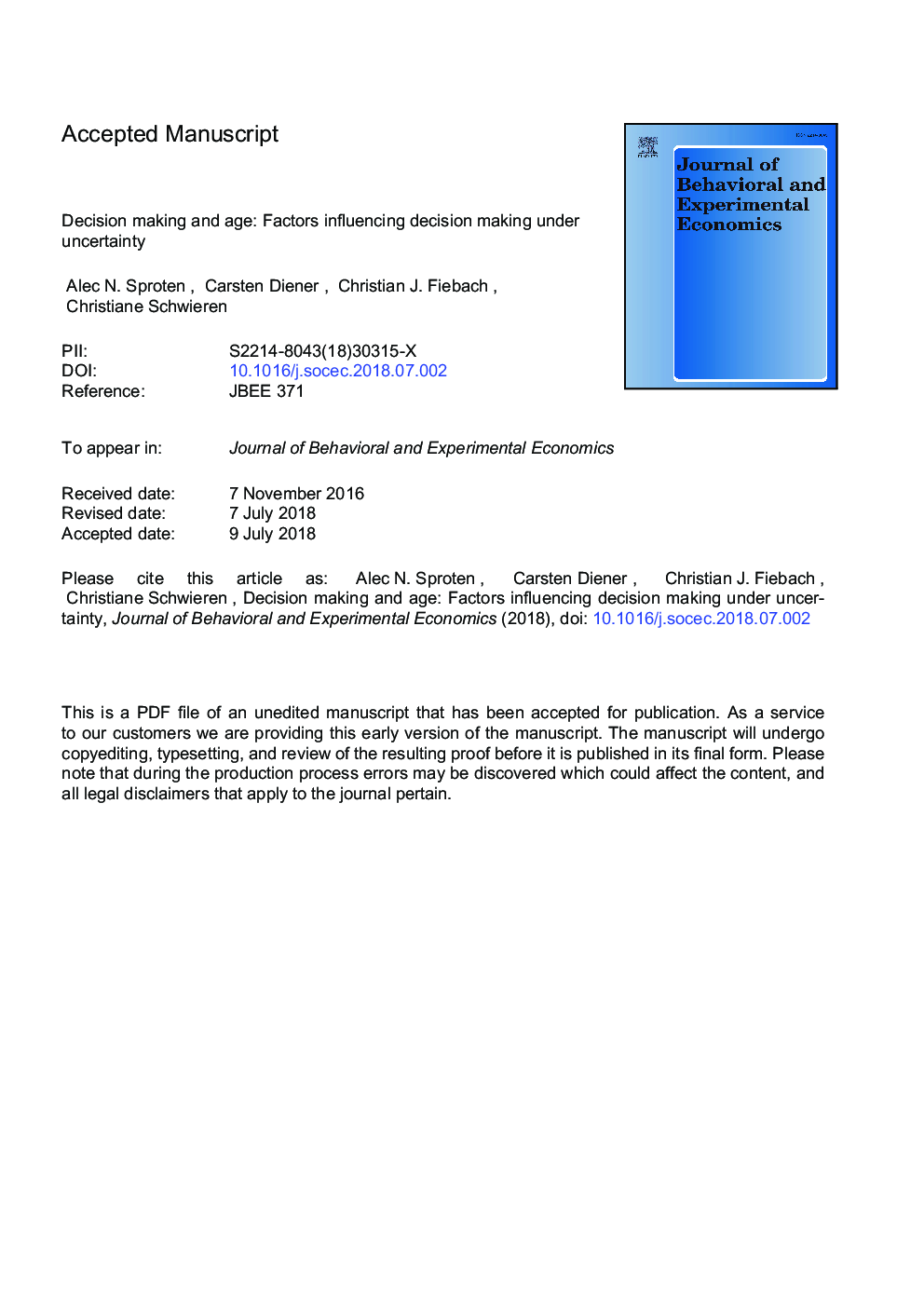| Article ID | Journal | Published Year | Pages | File Type |
|---|---|---|---|---|
| 9952861 | Journal of Behavioral and Experimental Economics | 2018 | 31 Pages |
Abstract
In the present study, we investigate how decision making under uncertainty is affected by age. We ran two experiments with young and older adults, systematically manipulating (1) uncertainty conditions (risk and ambiguity), (2) feedback on decisions and (3) requirements of the task regarding executive functions. Experiment 1 aims at investigating risk with a priori probabilities and ambiguity and the effects of feedback in a card game (Nâ¯=â¯200; older adults: 97). The results reveal no age differences in choice behaviour under risk with a priori probabilities. If feedback is provided, we find that older adults are less ambiguity averse than young adults, whereas there is no significant age difference if no feedback is provided. Moreover, the presence of feedback had a positive effect on the propensity to gamble in uncertain conditions by influencing subjective probabilities for both age groups. Experiment 2 uses the Balloon Analogue Risk Task (BART) to investigate decision making with statistical probabilities (Nâ¯=â¯100; older adults: 50). Here we report older adults being more risk averse, an effect that can be explained with age differences in sensitivity to prior choices. We support the results by comparing them to survey data and conclude that differences in uncertainty-processing exist between young and older adults. Possible explanations of these differences are discussed.
Related Topics
Social Sciences and Humanities
Economics, Econometrics and Finance
Economics and Econometrics
Authors
Alec N. Sproten, Carsten Diener, Christian J. Fiebach, Christiane Schwieren,
